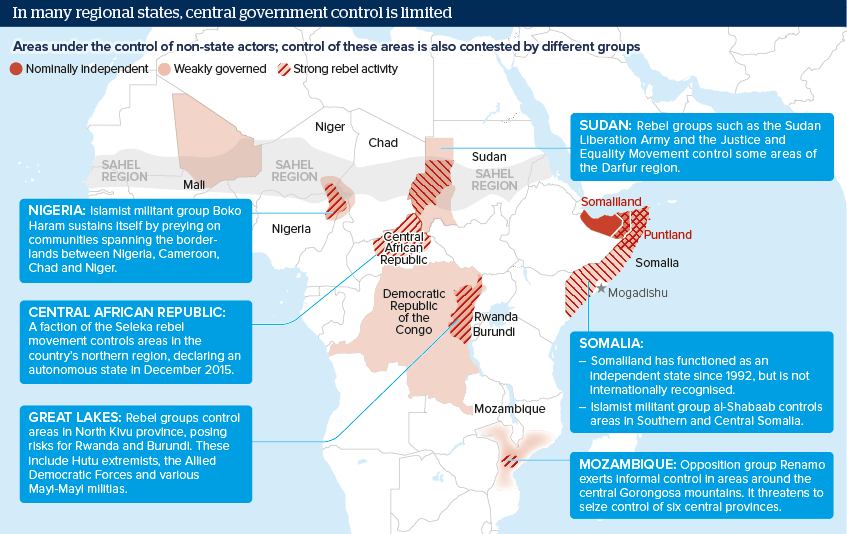Shadow governance to deepen weak African state control
The preponderance of weak states in sub-Saharan Africa provides ample scope for non-state actors to seize territory

Source: Oxford Analytica
Outlook
Weak state capacity, natural barriers (such as rainforests and deserts) and poor infrastructure have long undermined the ability of central governments in sub-Saharan Africa (SSA) to control their territories. Coupled with borders that often bisect ethnic groupings and negative memories of authoritarian post-independence leaders, populations' allegiances are largely local rather than to distant capitals.
Where evidence of an organised central state -- for example, social services -- is absent, aid agencies and traditional leaders often fill the gap. Weak formal governance also facilitates the rise of groups that seek territorial control. Sometimes, these establish their own governance systems, which include taxation and services provision. In others, they prey on local communities or leverage their clout to extract concessions from the government.
Impacts
- Criminal gangs will use their control of districts in large cities to perpetuate drug- and people-smuggling activities.
- French and US support to littoral West African states will mitigate, but not solve, weak governance in Gulf of Guinea.
- Traditional leaders will play a decisive role in many elections in 2016 due to their influence on voting patterns.
- Territorial losses by Islamist militants in the Sahel will encourage such groups to stage retaliatory attacks in urban centres.
See also
- Socio-economic dynamics allow Chad rebels to endure - Jul 19, 2021
- Governance failures stifle the Sahel - Jan 18, 2021
- Extractives transparency push will slow under Trump - Mar 13, 2017
- Somalia's political transition risks destabilisation - Jun 22, 2016
- Africa declining democratic norms portend instability - Apr 6, 2016
- More graphic analysis